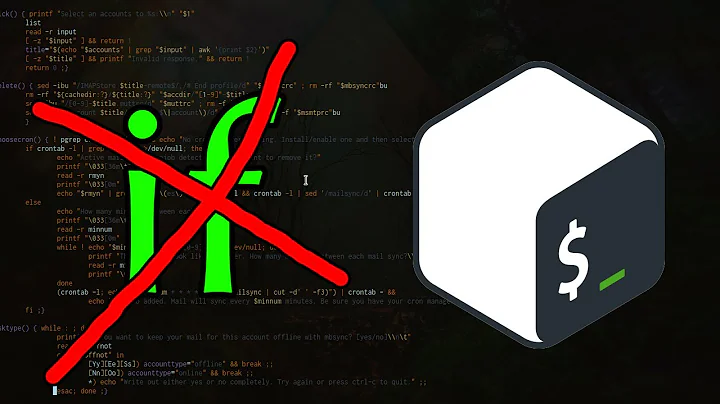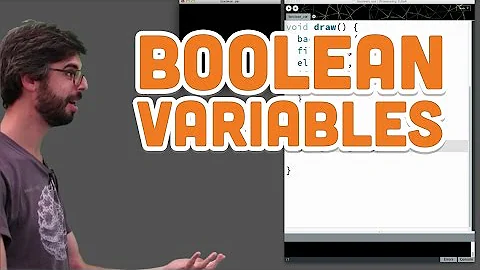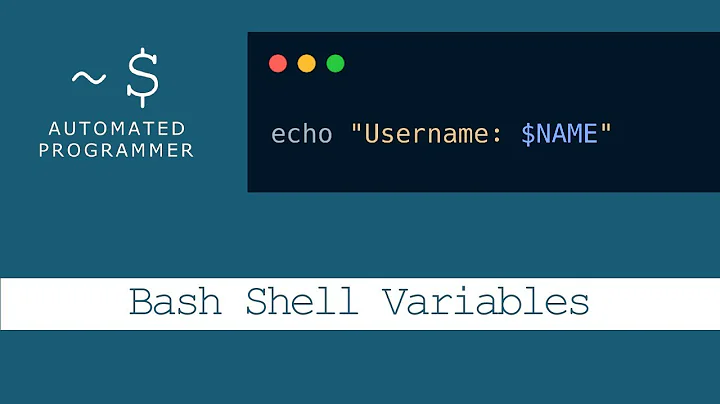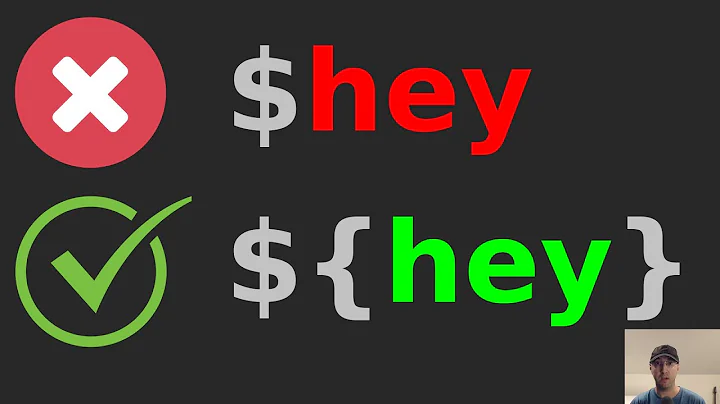BASH Converting String to boolean variable
16,065
Solution 1
You could write a function to do the conversion for you:
function boolean() {
case $1 in
TRUE) echo true ;;
FALSE) echo false ;;
*) echo "Err: Unknown boolean value \"$1\"" 1>&2; exit 1 ;;
esac
}
answers=(TRUE FALSE TRUE)
clean="$(boolean "${answers[0]}")"
var2="$(boolean "${answers[1]}")"
var3="$(boolean "${answers[2]}")"
echo $clean $var2 $var3
prints
true false true
Or, a little fancier:
function setBoolean() {
local v
if (( $# != 2 )); then
echo "Err: setBoolean usage" 1>&2; exit 1 ;
fi
case "$2" in
TRUE) v=true ;;
FALSE) v=false ;;
*) echo "Err: Unknown boolean value \"$2\"" 1>&2; exit 1 ;;
esac
eval $1=$v
}
answers=(TRUE FALSE TRUE)
setBoolean clean "${answers[0]}"
setBoolean var2 "${answers[1]}"
setBoolean var3 "${answers[2]}"
echo $clean $var2 $var3
Solution 2
You can just use something like:
[ "${answers[2]}" != "TRUE" ] ; clean=$?
You need to reverse the sense of the comparison if you want clean set to 1 on the condition being true.
Your sequence then becomes:
[ "${answers[0]}" != "TRUE" ] ; clean=$?
[ "${answers[1]}" != "TRUE" ] ; var2=$?
[ "${answers[2]}" != "TRUE" ] ; var3=$?
Related videos on Youtube
Author by
bluphoenix
Updated on September 18, 2022Comments
-
bluphoenix over 1 year
What's the best way to convert a literal string (e.g. "True" into the appropriate bash boolean variable). For instance java has java.lang.Boolean.valueOf(String)
Right now I'm using this in Bash:
if [ "${answers[2]}" = "TRUE" ] ; then clean=true; else clean=false; fiis there a way to do it and avoid the IF statement?
edit: to clarify its not by choice that I have String variable containing "TRUE" instead of just using a boolean variable. for full context this is the code
ans=$(yad --title='YadExample' --form --field=Opt1:CHK FALSE --field=Opt2:CHK FALSE --field=Opt3:CHK TRUE); #at this point the "yad" program is returning a string seperated by '|', e.g "TRUE|FALSE|TRUE" IFS="|" set -- $ans answers=( $@ ) unset IFS if [ "${answers[0]}" = "TRUE" ] ; then clean=true; else clean=false; fi if [ "${answers[1]}" = "TRUE" ] ; then var2=true; else var2=false; fi if [ "${answers[2]}" = "TRUE" ] ; then var3=true; else var3=false; fi -
bluphoenix about 11 yearsah nice. This is pretty much what I was looking for. I wanted to avoid cluttering the code with if statements for something that I might need to do a lot. This function is a good abstraction. Didn't know you could set variables like that from functions, thanks!
-
chepner about 11 yearsI would use
declareinstead ofevalin this case. It's safer (you can't execute arbitrary code from$1), and you're already usingbash-specific features. -
andrewdotn about 11 years@chepner When I change
eval $1=$vtodeclare $1=$v, the script stops working :/ I think it’s because it’s being used inside a function, but I’m not completely sure. -
chepner about 11 yearsOf course. I didn't pay attention to the scope. I guess this is a case where there isn't a good alternative to
evalfor earlier versions of bash. Version 4.2 ofbashdoes include a-goption fordeclareso that it can create global functions inside a function.









